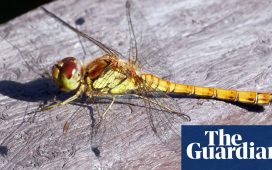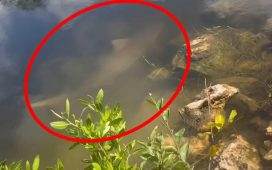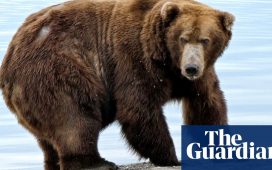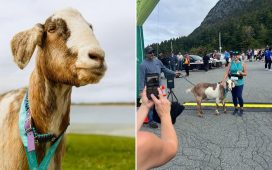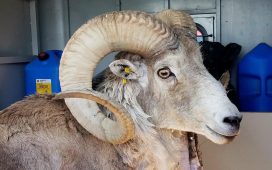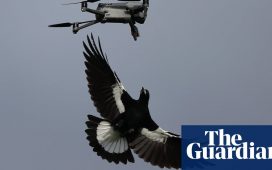The very funny naturalist and writer Redmond O’Hanlon was on a sandbank on the edge of a river in Borneo when hundreds of butterflies started to fly towards him and his travel companion and landed on their boots, trousers, and shirts, and “sucked the sweat from our arms.”
He watched them for a while – “there were Whites, Yellows and Blues, Swallow-tails, black, banded, or spotted with blue-greens” – and then stood up and brushed them off gently.
He writes, in Into the Heart of Borneo: “I walked away from my companion the mandatory few yards and took a pee myself. Whilst my patch of urine was still steaming slightly on the muddy sand, the males of Rajah’s birdwing […] flew over and crowded down on it, elbowing each other with the joints on their legs, pushing and shoving to get at the liquid, the brilliant feather-shaped marks on their black wings trembling slightly as they fed. I began, prematurely, to feel a part of things.”
This happens a few times on his journey – between the leeches and worms and catfish and fears of centipedes and more leeches – butterflies drinking his urine, his sweat, feeding off his damp clothing as he lays it out on a rock to dry. It’s surprising, endearing: butterflies aren’t so cheesy after all.
I have only once seen a group of butterflies – I refuse to use collective nouns, they all seem fake, it is not called a “kaleidoscope of butterflies”, it is not called a “flutter” – take flight off a large boulder next to a stream. I was walking alone, just out of sight of a group of adults, and whipped around to try to show somebody. It seemed utterly like magic. It was a very particular day; I was conscious that I was changing, my body stretching out from a child to a gangly teenager. I was getting used to it, I felt grown up, quite beautiful, stepping from rock to rock in a dress, introspectively crossing and recrossing the stream.
I began, prematurely, to feel a part of things, too. We learn about butterflies when we are small because it is foreshadowing: you too will change. Then you are told that if the dust on a butterfly’s wings rubs off, the butterfly will remain earth-bound and die. It is a myth, and what seems like dust is actually scales. But it is true that butterflies can’t replace their scales: when they are very old, they sometimes have clear patches on their wings.
But butterflies are an imperfect metaphor – an imperfect preparation – for what it feels like to live. They change too permanently after their caterpillarhood. To me anyway, life feels more like being inside a pupa, liquified, key structures intact, rearranging myself perpetually into something new. And feeling always, always, just a little slimy.
-
Helen Sullivan is a Guardian journalist. She is writing a book for Scribner Australia
-
Do you have an animal, insect or other subject you’d like to see profiled by this columnist? Email helen.sullivan@theguardian.com
